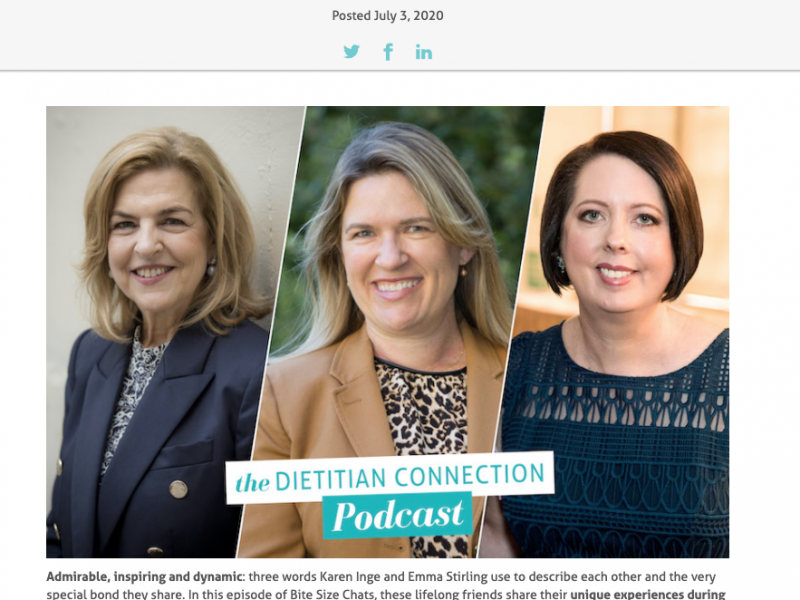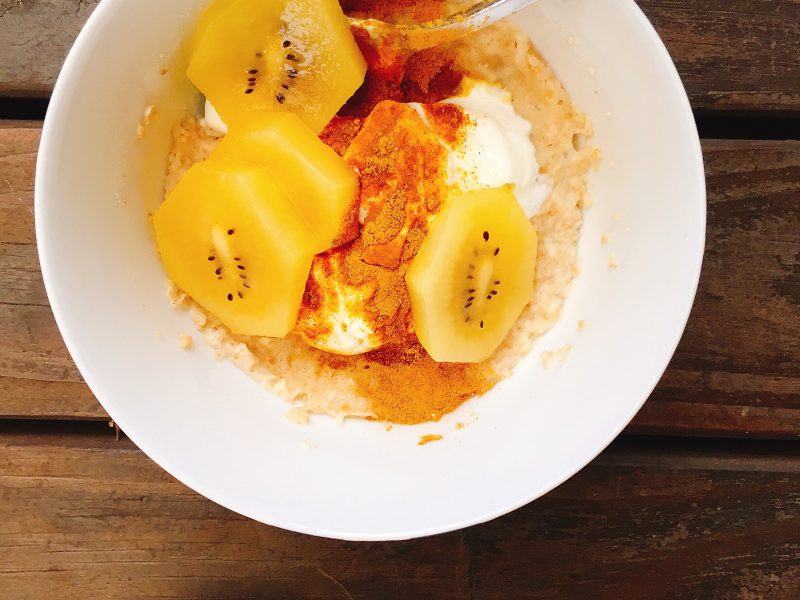As the Australian Bowel Cancer Awareness Week draws to a close I’m reminded of how many of us are touched directly or indirectly by cancer. From my early days working in paediatric oncology to friends and family no longer with us, it’s easy to clock up a long list. I bet you can too. While the focus for public health nutrition is on what to eat to prevent cancer we also need to celebrate and educate those who have made it through. I’m delighted to welcome back one of Australia’s leading experts in the field.
About our expert:
Dr Jane Read is a medical doctor and accredited nutritionist, completing her internship at Prince of Wales Hospital in Sydney. Jane completed her PhD and is heavily involved in establishing nutrition research trials within the Sydney Cancer Centre. A member of the Complementary Therapies Committee with the NSW Cancer Institute, she is working towards better informing people with cancer about complementary therapies. Jane has several publications in internationally peer reviewed journals, books, and popular media and has presented her research at conferences in Australia, Europe and the USA. You can connect with her on Twitter or Linked In.
The doctor gives you the good news…. ‘The cancer has gone, you’re all clear’. She gives you a warm hug and says, “Go and celebrate, and get back to living your life”. You’re finally free from the weekly hospital visits for treatment and doctors’ appointments. You are a cancer survivor.
The first thing you do after leaving the doctor’s office is to go to your favourite cafe, which you haven’t been to since you had the breast cancer diagnosis. The waiter brings you a menu, and you ponder over the items. In a state of confusion you wonder, should I have my favourite, the flourless chocolate torte with a dollop of fresh cream alongside my latte, for old time’s sake, or should I be opting for the healthy skim milk banana smoothie? What should a cancer survivor be eating?
There are over 340000 cancer survivors in Australia. This is expected to increase in the future. The role that nutrition and physical activity play in improving survival is an emerging field of research and there is growing evidence that a healthy lifestyle may reduce the risk of cancer recurrence. People who have had a cancer diagnosis are also at increased risk of other cancers, cardiovascular disease and osteoporosis.
Strive for that healthy weight
There is good evidence, particularly in breast cancer, that obesity is associated with a high risk of cancer recurring. Women with a body mass index (BMI) <25 had significantly better survival compared to those women who are overweight or obese. The women’s intervention Nutrition study (WINS) was a large trial following women with early stage breast cancer. The study showed that people who reduced their fat intake, lost more weight and significantly reduced their risk of recurrence. Other studies have not been so conclusive, so more research is needed.
Cancer survivors who have lost or gained weight during treatment should aim to be in the healthy weight range (BMI 18.5-25).
Move more
Physical activity plays a vital role in weight control and exercise has also been shown to improve physical and psychosocial function, quality of life and cancer related fatigue. There are no hard and fast rules about how much exercise you should be doing if you are a cancer survivor, however there are some large trials currently underway looking at the survival benefits of exercise. It appears that the significant benefits are seen with just modest amounts of activity, however the higher the activity level, the lower the risks are. A growing population of cancer survivors stand to benefit from exercise programs specifically designed for their needs. The Cancer Council NSW is currently running a healthy lifestyle intervention program for cancer survivors, incorporating both exercise and healthy eating strategies.
Speak to your health professionals, but as a rule of thumb aim for 30 minutes of moderately intense physical activity every day.
Eat those plant foods
 A few studies have found a significant association between an increased intake of fruit and vegetables and improved survival in breast cancer survivors and in people with oral cancers. Fruit and vegetables play an important role in cancer prevention. They are low in energy and rich in nutrients including vitamins, minerals, cancer-fighting phytochemicals, antioxidants and fibre. One study found that for patients who had survived breast cancer, a prudent dietary pattern (high in fruits, vegetables, wholegrains, legumes, poultry and fish) was associated with a reduced risk of dying from causes other than breast cancer. Another study in people with ovarian cancer showed that those who consumed cruciferous vegetables (such as broccoli, cauliflower brussel sprouts, cabbage and bok choy), had a longer survival. Dietary factors associated with reduced risk for prostate cancer recurrence include fish, tomato sauce, and monounsaturated fat intake (avocadoes, olives, canola oil and nuts)
A few studies have found a significant association between an increased intake of fruit and vegetables and improved survival in breast cancer survivors and in people with oral cancers. Fruit and vegetables play an important role in cancer prevention. They are low in energy and rich in nutrients including vitamins, minerals, cancer-fighting phytochemicals, antioxidants and fibre. One study found that for patients who had survived breast cancer, a prudent dietary pattern (high in fruits, vegetables, wholegrains, legumes, poultry and fish) was associated with a reduced risk of dying from causes other than breast cancer. Another study in people with ovarian cancer showed that those who consumed cruciferous vegetables (such as broccoli, cauliflower brussel sprouts, cabbage and bok choy), had a longer survival. Dietary factors associated with reduced risk for prostate cancer recurrence include fish, tomato sauce, and monounsaturated fat intake (avocadoes, olives, canola oil and nuts)
Eat a mainly plant-based diet. Aim for at least 2 pieces of fruit and 5 servings of vegetables daily.
Treat meat no differently
Although there is an association between meat consumption and the risk of colorectal cancer, there is no evidence to suggest an association between meat consumption and survivorship. It is best for cancer survivors to follow the Australian dietary guidelines recommending lean meat (65-100g) 3-4 times per week. Aim to limit or avoid processed meat.
Eat lean meat 3-4 times per week.
Say cheers
Alcohol has been consistently linked with the development of cancer, however there is little information about alcohol and its role after a cancer diagnosis. Small amounts of alcohol may have some protective effects particularly on the heart, however it is still advisable to limit your alcohol intake and follow the recommendations for prevention.
The Australian Cancer Council recommends no more than 2 standard drinks per day. Try and have 1-2 alcohol free days per week
Despite the fact that many cancer survivors believe vitamin and mineral supplements to be beneficial, the research to date has been disappointing. Some studies have found that people taking particular vitamin supplements may reduce their survival. Fruits and vegetables contain abundant nutrients and cancer-fighting phytochemicals that cannot be replicated in a pill. Cancer survivors should aim to get all their nutritional requirements from food, however if this is difficult, a daily multi-vitamin would be appropriate.
Celebrate life
So when sitting at your favourite café, pondering over the menu, to get your new cancer-free life off to a good start, say NO to the chocolate torte most of the time. And YES to the vitamin rich, fruit filled healthy smoothie. But today you can say yes. As food is part of the celebration of life. And you deserve a celebration.
Editor’s comment:
Thanks Jane. It is certainly a fascinating and important area of research as medical advances mean more and more survivors. I have your reference list for any colleagues interested, just drop us a comment below and I’ll email. I’m sure that we have plenty of questions for you in our comments below? I’m wondering what supplements showed promise? I know your research looked at omega 3’s?



